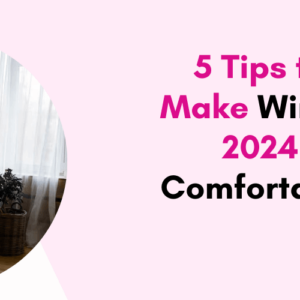

Coirfit
10 Unique Ways to Fall Asleep Faster and Wake Up Refreshed
Getting a good night’s sleep is crucial for our overall well-being. It not only helps us feel refreshed and alert during the day but also plays a significant role in maintaining optimal physical and mental health. However, falling asleep quickly and waking up rejuvenated can be a challenge for many. If you’re tired of tossing and turning, fret not! We have compiled a list of ten unique and effective methods to help you fall asleep faster and wake up feeling energized.

1. Create a Relaxing Bedtime Routine
Establishing a relaxing bedtime routine can signal your body that it’s time to wind down and prepare for sleep. Consider incorporating activities that promote relaxation, such as taking a warm bath, reading a book, or practicing gentle stretches. Dimming the lights and playing soft, soothing music can also create a serene environment to ease your transition into sleep.
2. Embrace the Power of Aromatherapy
Harnessing the power of scents can significantly impact your sleep quality. Try incorporating aromatherapy into your bedtime routine by using essential oils such as lavender, chamomile, or jasmine. These fragrances have been known to promote relaxation and induce a sense of calmness, allowing you to fall asleep faster and wake up feeling well-rested.
-Lavender Essential Oil
Lavender, with its soothing properties, has long been celebrated for its ability to facilitate sleep. Add a few drops of lavender essential oil to your pillow, use a diffuser in your bedroom, or even try lavender-scented bed linen to enhance the relaxing ambiance.
-Chamomile Essential Oil
Chamomile, known for its calming effects, can also aid in improving sleep quality. Infuse chamomile essential oil into a warm bath or use it in a diffuser for a restful night’s sleep.
3. Optimize Your Sleep Environment
Creating the ideal sleep environment can have a significant impact on your ability to fall asleep faster and wake up refreshed. Ensure your bedroom is cool, quiet, and free from distractions. Consider using blackout curtains to block out unwanted light, investing in a comfortable mattress and pillows, and using earplugs or white noise machines to drown out any disruptive sounds.
4. Practice Meditation or Relaxation Techniques
Engaging in relaxation techniques before bed can help calm an overactive mind, making it easier to fall asleep. Meditation, deep breathing exercises, and progressive muscle relaxation are effective practices that promote relaxation and prepare your body for restful sleep. Explore different techniques and find what works best for you.

5. Try Cognitive Behavioral Therapy for Insomnia (CBT-I)
Cognitive Behavioral Therapy for Insomnia (CBT-I) is a well-established, evidence-based approach to combat sleep difficulties. CBT-I focuses on identifying and changing negative thought patterns and behaviors that contribute to insomnia. Consider seeking out a qualified therapist who specializes in CBT-I to help address any underlying factors that may be hindering your sleep.
6. Create a Sleep-Friendly Schedule for Fall Asleep Faster
Establishing a consistent sleep schedule can regulate your body’s internal clock, making it easier to fall asleep and wake up feeling refreshed. Aim to go to bed and wake up at the same time every day, even on weekends. Consistency reinforces your body’s natural sleep-wake cycle.
7. Limit Exposure to Screens Before Bedtime
The blue light emitted by electronic devices such as smartphones, tablets, and computers can disrupt your sleep patterns and make it harder to fall asleep. So improve your sleep quality, establish a technology curfew by avoiding screen time at least one hour before bed. Instead, engage in relaxing activities like reading a book or listening to calming music.
8. Consider Natural Sleep Aids
If you’ve tried various techniques and still struggle to fall asleep, natural sleep aids might be worth exploring. Certain herbal supplements such as valerian root, passionflower, or melatonin have been found to promote sleep. but However, it’s essential to consult with a healthcare professional before incorporating any supplements into your routine to ensure they are safe and suitable for you.
9. Create a Restful Bedroom Environment
Transform your bedroom into a sanctuary for sleep by decluttering and keeping it tidy. Remove any work-related items or electronics that may remind you of unfinished tasks or induce stress. Consider utilizing calming colors, soft lighting, and comfortable bedding to create a tranquil atmosphere that promotes relaxation and sound sleep.

10. Implement Stress-Relief Strategies
Stress can significantly impact your ability to fall asleep and maintain quality sleep. Experiment with stress-relief techniques like journaling, practicing gratitude, engaging in gentle exercise, or even trying out relaxing hobbies like painting or knitting. By managing stress effectively, you can improve your sleep patterns and wake up feeling rejuvenated.
Conclusion
Incorporating these ten unique and effective methods into your daily routine can help you bid farewell to sleepless nights and greet each morning with renewed energy. Experiment with different approaches and find a combination that works best for you. Remember, quality sleep is within your reach, and with a little effort, you’ll be well on your way to enjoying a restful night’s sleep and waking up refreshed each day.
To purchase a comfortable mattress, visit https://www.coirfitmattress.com/
know more about Coirfit Updates and Sleep Tips, Binge on-

To know more about Coirfit Updates and Sleep Tips, Binge on-
















